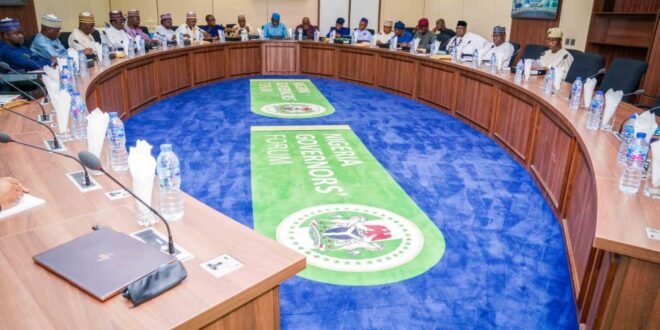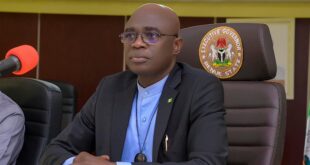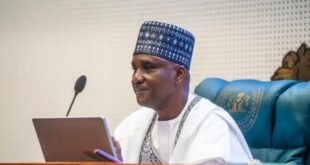The Nigeria Governors’ Forum (NGF) has called on the National Minimum Wage Committee to take into account the present circumstances, unique characteristics of individual states, and the resulting effects on both government and private sector employers’ ability to pay when determining the wage amount.
This comes as labor unions argue that the existing national minimum wage of N30,000 is no longer viable due to high inflation rates.
In early January, the Federal Government launched a tripartite committee to deliberate on the national minimum wage, comprising representatives from the federal and state governments, the private sector, and organized labor.
Workers have requested varying minimum wage rates across different geopolitical zones, and the committee has initiated the compilation of reports from public hearings in these zones.
During its virtual meeting, the NGF emphasized the importance of incorporating state policing as a crucial amendment in the ongoing 1999 Constitutional amendment process to address a fundamental flaw in the national security framework.
The forum also reviewed the progress of the National Minimum Wage Committee and ongoing multi-stakeholder engagements towards agreeing on a fair minimum wage.
Members urged the NMWC to consider the current realities, individual state peculiarities, and consequential impact on the capacity of the government as well as private sector employers to pay.
Additionally, the NGF highlighted the need for state policing as a critical amendment in the ongoing 1999 Constitutional amendment proceedings to correct a fundamental flaw in the national security architecture.
The forum discussed the growing concern raised by the United States Embassy over illegal and fraudulent intercountry adoption of Nigerian children by US citizens, including systemic fraud and corruption, child-buying, the imprisonment of pregnant women, and unreliable or non-existent documentation.
Members pledged to engage the relevant Ministries, Departments, and Agencies of government to address the situation.
The NGF also discussed the progress made by states in implementing various business-enabling reforms, such as enhancing land administration, fostering Public Private Partnerships, promoting investments, improving infrastructure, and refining regulatory environments through the World Bank’s State Action on Business Enabling Reforms Programme for Results.
As the minimum wage issue continues to be a topic of debate, the NGF’s call for a state-specific approach and consideration of employers’ ability to pay could lead to more tailored solutions that address the unique circumstances of individual states and their respective economies.
Subscribe to the Advocate News letter and receive news updates daily in your inbox.
 Advocate.ng Latest news update on politics, entertainment, sport and more
Advocate.ng Latest news update on politics, entertainment, sport and more




